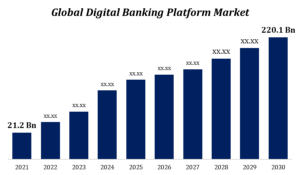How Fintech Startups Are Disrupting the Wealth Management Space
The wealth management industry, traditionally dominated by large financial institutions and advisors, is undergoing a significant transformation. The catalyst for this change? Fintech startups. These innovative companies are leveraging technology to offer services that were once reserved for the wealthy, democratizing access to investment strategies, and challenging the status quo. Here’s how fintech startups are disrupting the wealth management space and what it means for investors.
1. Democratization of Wealth Management
One of the most significant impacts fintech startups have had on wealth management is the democratization of services. Historically, wealth management was a service accessible only to high-net-worth individuals, with high fees and account minimums acting as barriers to entry. Fintech startups are changing this narrative by offering low-cost, automated investment solutions—often with no minimum investment requirement.
Robo-advisors, such as Betterment and Wealthfront, are prime examples. These platforms use algorithms to manage portfolios based on an individual’s risk tolerance and financial goals. By automating the investment process, robo-advisors can offer personalized wealth management services at a fraction of the cost of traditional advisors, making it accessible to a broader audience.
2. Enhanced User Experience and Accessibility
Fintech startups prioritize user experience, making wealth management more accessible and user-friendly. Through intuitive mobile apps and online platforms, these companies enable investors to manage their portfolios, track performance, and make adjustments with ease. The emphasis on transparency and simplicity has attracted a new generation of investors who prefer to have control and visibility over their financial decisions.
Additionally, fintech platforms often provide educational resources, helping users understand investment strategies and financial planning. This empowerment through knowledge further disrupts the traditional model, where advisors held much of the expertise and control.
3. Personalization Through Artificial Intelligence
Artificial intelligence (AI) is another game-changer in the fintech space. By analyzing vast amounts of data, AI can offer highly personalized investment advice tailored to an individual’s financial situation, goals, and risk appetite. This level of personalization was previously only available through a dedicated financial advisor.
Startups like SigFig and Wealthsimple are integrating AI to provide more sophisticated investment strategies and predictive analytics, helping investors make informed decisions. This technology-driven approach challenges the traditional one-size-fits-all model, offering investors a more customized and proactive wealth management experience.
4. Integration of Socially Responsible Investing (SRI)
Socially responsible investing (SRI) has gained traction in recent years, with more investors seeking to align their portfolios with their values. Fintech startups are at the forefront of this trend, offering SRI options that allow investors to support companies with strong environmental, social, and governance (ESG) practices.
Platforms like OpenInvest and Ellevest offer SRI portfolios that enable investors to make a positive impact while achieving their financial goals. This focus on ethical investing is appealing to a growing segment of the population, particularly younger investors, and further differentiates fintech startups from traditional wealth management firms.
5. Agility and Innovation
Fintech startups are inherently agile, able to adapt quickly to market changes and customer needs. This flexibility allows them to innovate at a faster pace than traditional financial institutions, which are often burdened by legacy systems and bureaucratic structures.
For example, fintech startups are exploring the use of blockchain technology to enhance transparency and security in wealth management. Others are developing tools that integrate with other financial services, creating a seamless ecosystem for users. This constant innovation keeps fintech startups ahead of the curve, continually challenging the traditional wealth management model.
Fintech startups are undeniably disrupting the wealth management space, offering innovative solutions that challenge traditional models and empower a broader range of investors. By democratizing access, enhancing user experience, leveraging AI for personalization, integrating socially responsible investing, and driving continuous innovation, these startups are reshaping the future of wealth management.
For investors, this disruption presents both opportunities and challenges. While the accessibility and personalization offered by fintech platforms are attractive, it’s essential to carefully evaluate these services and consider how they align with long-term financial goals. As fintech continues to evolve, staying informed and adaptable will be key to navigating this rapidly changing landscape.


































